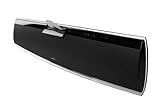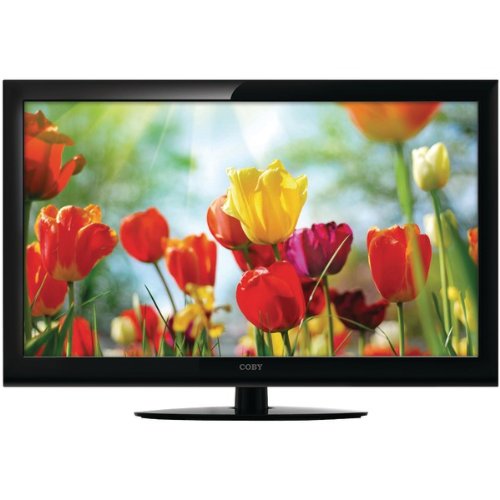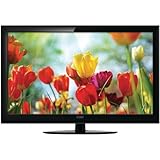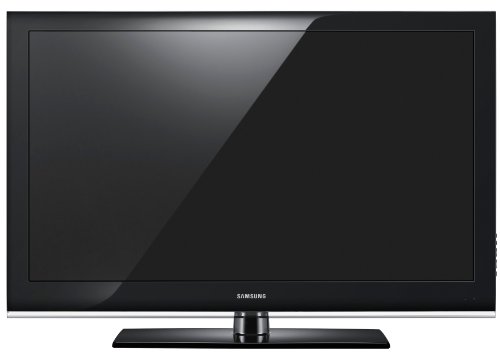Toshiba 52HM84 52-Inch HDTV-Ready Projection DLP TV for Sale - Review & Buy at Cheap Price

List Price : $3,299.99

Toshiba 52HM84 52-Inch HDTV-Ready Projection DLP TV Feature | Sale - Review & Buy at Cheap Price
- 52-inch 16:9 HD-ready rear-projection DLP TV with native 720p resolution; 58.4 x 31.8 x 15.3 inches (W x H x D)
- 3D Y/C (4 MB, 10-bit) digital comb filter with Vertical Contour Correction helps eliminate dot crawl and color bleed
- Cinema Mode 3:2 pulldown corrects frame rate for distortion-free movie viewing;
- 6 A/V jacks, including dual ColorStream HD high-resolution component video inputs and HDMI input
- 20-watt-per-channel stereo speakers with support for MTS, SAP with dbk, SRS WOW, and StableSound volume leveler
- CableClear DNR+ digital noise reduction for cleaner pictures from analog sources
|
|
|
| Brand: |
|
| List Price: |
$3,299.99 |
| Our Price: |
|
| Total Price: |
|
| N/A |
Toshiba 52HM84 52-Inch HDTV-Ready Projection DLP TV Specifications | Sale - Review & Buy at Cheap Price
Toshiba takes digital light processing (DLP) technology into the future with the 52-inch TheaterWide 52HM84 HD-ready rear-projection TV. The 16:9 52HM84 uses a proprietary system called TALEN (Toshiba Advanced Light Engine); based on the Texas Instruments HD2+ DLP chip, it enhances brightness and contrast while keeping the 1,280 x 720 progressive resolution (720p). Toshiba's TheaterWide TVs challenge direct-view CRT models when it comes to reproducing deep blacks and details in dark or shadowy scenes.
| What is DLP? |  DLP, or digital light processing, is a technology that bounces a colored light beam across an array of hundreds of thousands of hinge-mounted microscopic mirrors attached to a single chip, called a micromirror device (below, pictured with the head of a pin). DLP, or digital light processing, is a technology that bounces a colored light beam across an array of hundreds of thousands of hinge-mounted microscopic mirrors attached to a single chip, called a micromirror device (below, pictured with the head of a pin). |  | | Each of the mirrors can be pointed toward or away from the light source thousands of times per second, providing not only minute color detail, but also sharper resolution than even LCD displays. |  |
|
This set is HDTV ready (it needs an optional high-definition receiver to get HD signals), but can improve standard-definition video, thanks to Toshiba's multistep PixelPure video processing system, which optimizes the three main picture quality factors: resolution, contrast, and color. All incoming signals are converted by the built-in scaler to match the DLP chip's native 720p resolution.
PixelPure encompasses eight different processing circuits. Among its components are 6.2- million-pixel oversampling (for higher perceived resolution), real-speed progressive scanning (which uses additional sampling points to create smoother diagonal lines), a Magic Square algorithm (for smooth, natural color gradation), Dynamic Contrast Enhancer (for higher perceived contrast and increased color saturation), and Color Detail Enhancer (to maintain fine image detail in color-saturated areas).
DLP technology uses an optical semiconductor, known as the Digital Micromirror Device, or DMD chip, to digitally manipulate light. The chip contains a rectangular array of up to 1.3 million microscopic mirrors, each measuring less than one-fifth the width of a human hair. A DMD panel's micromirrors are mounted on tiny hinges that enable them to tilt either toward the light source (on) or away from it (off), creating a light or dark pixel on the projection surface. The bit-streamed image code entering the semiconductor directs each mirror to switch on and off up to several thousand times per second, enabling the mirrors to reflect pixels in up to 1,024 shades of gray.
The HD2+ DLP chip ensures an ultraclean image by filling in the dimples, or vias, in the mirrors to avoid stray light. It increases both brightness and contrast, resulting in an impressive color-corrected contrast ratio (2,200:1) at 1,100 ANSI lumens. The set's TheaterFine HD Super Fine Pitch screen reduces the physical space between the lines on the lenticular screen, resulting in a finer, sharper, more detailed picture.
Toshiba's DFine Hi-Speed VSM (velocity scan modulation) improves contrast and overall picture sharpness, while the CableClear DNR+ digital noise reduction optimizes poor NTSC signals from antenna or cable, further eliminating video noise ("snow") for a clean, crisp image. Cinema Mode circuitry (3:2 pulldown switch) identifies original film-based content from DVDs, then reassembles the frame sequence to more accurately reproduce the original 24-frame-per-second material.
A 3-D Y/C (4 MB, 10-bit) digital comb filter with Vertical Contour Correction helps eliminate dot crawl and color bleed and significantly reduces detail noise, seen as shimmering or flicker, in complex or intricately detailed scenes. Color temperature controls allow you to adjust white balance. The Warm setting reduces the color temperature to an NTSC standard 6,500 degrees Kelvin and delivers a redder image that is ideal for display in a dimly lit room. Medium and Cool setting provide a progressively bluer image for the best picture as room light levels are increased.
The 52HM84 has plenty of inputs for connecting all your audio and video components. In back you'll find two RF, two composite video, two S-Video, and two HD ColorStream component video, as well as a High-Definition Multimedia Interface (HDMI) digital input. HDMI is an uncompressed, all-digital audio-video interface that supports standard, enhanced, or high-definition video, plus eight-channel digital audio--all on a single cable. A set of front composite and S-video inputs make hooking up a game console or camcorder a snap.
Other features include HD Window dual-tuner POP (picture-on-picture) with PIP sound for listening to two programs simultaneously, the new Radiance DC lamp with high brightness and lower power modes for extended life, individual audio-video settings by input type, sleep and wake timers, Real Speed progressive scanning to create smoother diagonal lines, the Color Transient Improver for sharp transitions on color changes without bleeding, and the Color Detail Enhancer to maintain fine image detail in color-saturated areas.
Aside from the 20-watts-per-channel stereo speaker system, the 52HM84 uses MTS for programming with stereo sound, and SAP for receiving a second audio track in another language. Meanwhile, SRS WOW combines 3-D Sound (simulated surround sound from any stereo audio) with TruBass (yet another low-frequency enhancement) and Focus (which clarifies voices). The StableSound volume leveler eliminates drastic volume spikes while changing channels or when channels go to a commercial break.
What's in the Box
52-inch 52HM84 HD-ready rear-projection DLP TV, four-item illuminated universal remote with DVD control, warranty, and user's manual.
[if Toshiba takes digital light processing (DLP) technology into the future with the 52-inch TheaterWide 52HM84 HD-ready rear-projection TV. The 16:9 52HM84 uses a proprietary system called TALEN (Toshiba Advanced Light Engine); based on the Texas Instruments HD2+ DLP chip, it enhances brightness and contrast while keeping the 1,280 x 720 progressive resolution (720p). Toshiba's TheaterWide TVs challenge direct-view CRT models when it comes to reproducing deep blacks and details in dark or shadowy scenes.]
Toshiba 52HM84 52-Inch HDTV-Ready Projection DLP TV Overview | Sale - Review & Buy at Cheap Price
Toshiba takes digital light processing (DLP) technology into the future with the 52-inch TheaterWide 52HM84 HD-ready rear-projection TV. The 16:9 52HM84 uses a proprietary system called TALEN (Toshiba Advanced Light Engine); based on the Texas Instruments HD2+ DLP chip, it enhances brightness and contrast while keeping the 1,280 x 720 progressive resolution (720p). Toshiba's TheaterWide TVs challenge direct-view CRT models when it comes to reproducing deep blacks and details in dark or shadowy scenes.
*** Product Information and Prices Stored: Sep 25, 2011 11:08:49
Tags : for Sale . . . garmin golf watch sandisk mp3 clip
































 DLP, or digital light processing, is a technology that bounces a colored light beam across an array of hundreds of thousands of hinge-mounted microscopic mirrors attached to a single chip, called a micromirror device (below, pictured with the head of a pin).
DLP, or digital light processing, is a technology that bounces a colored light beam across an array of hundreds of thousands of hinge-mounted microscopic mirrors attached to a single chip, called a micromirror device (below, pictured with the head of a pin). 






